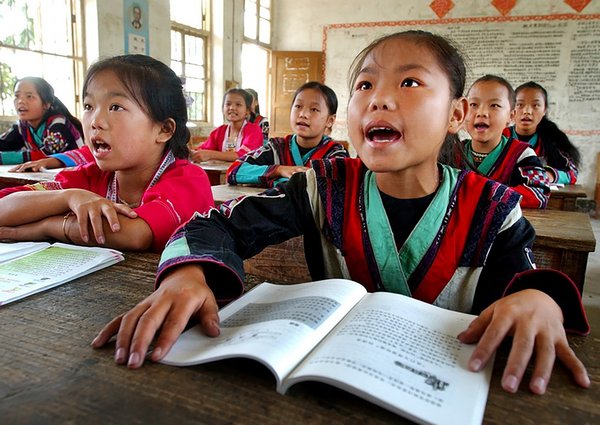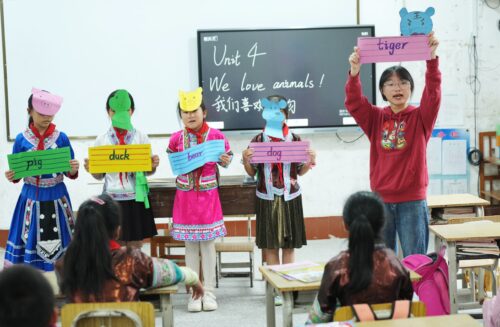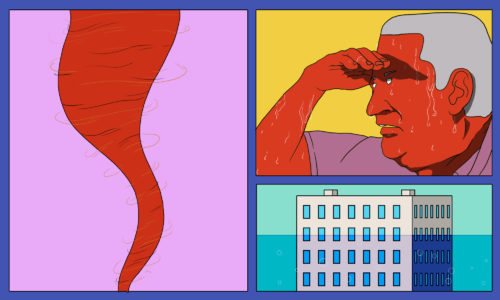Girls-only education charity program under fire for financing boys
Girls-only education charity program under fire for financing boys


A high-profile Chinese charity program, created to empower low-income female students by offering them financial aid, has come under attack after people discovered that a notable percentage of its beneficiaries are boys.
The practice was brought to light on December 17 when a Weibo user made a post accusing Spring Buds Plan (春蕾计划 chūnlěijìhuá), an education charity launched and managed by China Children and Teenagers Foundation (CCTF), of misusing donor money on boys, which goes against its promise to “help drop-out girls in impoverished areas return to schools,” as the charity states on its website.
In the since-deleted post, the author said she felt duped by the cause after she found out that about 70 percent of its beneficiaries are boys (a number that the charity disputes). “I always thought recipients of Spring Buds’ donations were girls. I have no idea when it changed its policies,” she wrote. The woman also raised questions about whether the charity actually spent its donations on students and schools in need, as she noticed that some schools favored by the program were well-funded already. “Their meeting rooms have leather sofas,” she complained. “Do they really need public donations? How about buying fewer sofas?”
In 1989, CCTF created Spring Buds under the leadership of the All-China Women’s Federation. Per its official introduction (in Chinese), the charity program is dedicated to providing life-changing education and job opportunities to school-age girls and women in colleges facing extreme poverty and other difficulties in life. Since its establishment, the cause has grown significantly with an increase of donations. In recent years, it has expanded its activities to include “improving education quality in poverty-stricken areas” and “educating girls about safety measures.” As stated on its website, Spring Buds so far has financially helped more than 3.69 million girls, funded more than 1,811 schools, and offered job training to about 530,000 young women.
While the original post has been removed, its claims circulated widely and swifty drew an avalanche of responses critical of the program. In a viral post that has generated more than 50,000 likes and over 1,500 comments on Weibo, @乔凯文, a popular blogger focusing on social issues, pointed out (in Chinese) that when the program was founded, China had about 4.8 million children ages 7 to 14 who couldn’t afford schools, and 80 percent of them were girls.
In rural Chinese areas, due to limited resources and a backward culture of gender bias, women are often treated as second-class and exploited by their parents. In the eyes of many poor families, daughters are often perceived to be less valuable after receiving education, and less likely to abide by the will of their family members. Often their male siblings will be given the opportunity to attend schools instead.
Citing this misogynist tradition, @乔凯文 wrote: “This is a program for girls but some donations have gone to boys. How will donors feel about this after they learn the truth? Why not create another charity program just for boys if you want to help them?”
Responding to widespread backlash to its misuse of donor money, CCTF issued a statement (in Chinese) yesterday admitting to financing boys and apologizing for the confusion that it had caused. According to the statement, among the 1,267 high school students who received its financial aid lately, 453 of them are boys. CCTF explained that when it started seeking donations on online platforms, it intended to only help girls. But during the operation, the foundation changed its mind after local teachers told them that some boys from low-income families also needed support. “We promise that we’ll continue making girls our main focus,” CCTF said, adding that cases where boys are beneficiaries would be highlighted in future documents.
The statement, received by many as more of a non-apology, failed to stem a wave of outrage. After a slew of negative feedback, CCTF has shut down the comment section of its statement post on Weibo. Meanwhile, on the micro-blogging platform, a trending topic regarding the matter also mysteriously disappeared yesterday. The obvious attempt to control the narrative only further agitated internet users, who were disappointed by the foundation’s response. “Does it cost money to remove trending topics and censor comments? Is the money coming from donations?” a Weibo user questioned (in Chinese).








